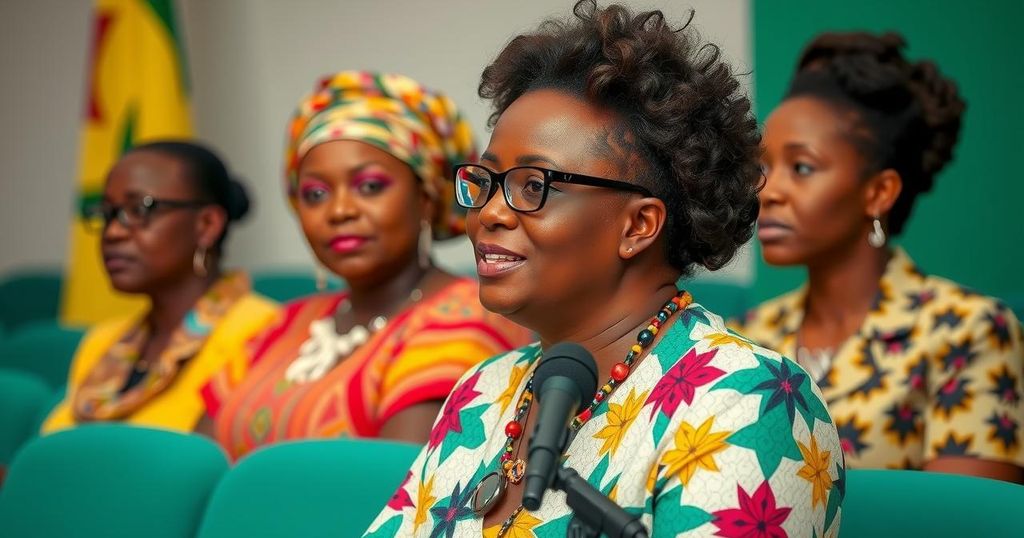Despite the election of Ghana’s first female Vice President in 2024, women’s representation in parliament has only slightly improved. The electoral system’s structure remains a significant barrier, and the absence of a gender quota exacerbates the issue. Reforming the electoral system and encouraging party-level changes are essential for enhancing women’s representation in government.
In December 2024, Ghana saw the election of its first female Vice President, Naana Jane Opoku Agyemang, while John Mahama returned as President. Despite these milestones, the number of women elected to parliament rose only slightly from 40 in 2020 to 43 in 2024, with systemic barriers still hindering women’s political participation. Key challenges include the single-member district ‘first past the post’ voting system and the absence of a gender quota. To improve female representation, reforms in electoral systems and party candidate selection are essential, drawing on successful models from other nations.
Ghana’s electoral landscape presents significant obstacles for women seeking parliamentary positions. The current voting system, characterized as “woman unfriendly,” exacerbates the difficulty for female candidates, whereas systems that employ proportional representation tend to allow for higher female representation through electoral quotas. Ghana’s established historical practices included gender quotas, but these have since lapsed, illustrating the need for renewed commitment.
The African Union emphasizes the importance of gender equality across the continent, highlighting the concerted effort required to achieve this in political representation. Successful examples in African nations, including Rwanda and Sierra Leone, have demonstrated that electoral reform and gender quotas can drastically improve women’s political standing. Therefore, it is imperative for Ghana to adopt similar strategies to promote gender diversity in governance.
Ghana’s political parties hold the key responsibility for candidate selection, and reforms in the primary election process could lead to a greater number of women candidates. While there exist legislative efforts, like the recent Affirmative Action Bill, the lack of clear mandates hampers effective implementation. The proposed “safe seats strategy”—nominating women in constituencies likely to be won by their party—could further bolster female representation, although party acceptance of such strategies remains uncertain.
Ghana has faced ongoing challenges in achieving gender parity in its parliamentary representation. Despite progressive milestones, including the election of female leaders, systemic barriers related to its electoral system prevent significant advancement for women. Ghana’s single-member district system, characterized by the ‘first past the post’ model, inherently disadvantages women candidates. An analysis of global trends demonstrates that regions utilizing proportional representation and electoral gender quotas realize higher female representation. The plight of women in Ghanaian politics is compounded by high campaign costs and barriers to entry during party primaries, often dominated by entrenched party structures. Lessons learned from neighboring countries that have successfully enacted reforms illustrate a path forward for Ghana to improve women’s positions in government.
In summary, Ghana’s electoral framework presents repetitive challenges that hinder women’s representation in parliament. Adopting a more inclusive electoral system, instituting gender quotas, and reforming party candidate selection processes are vital steps needed to elevate women’s political participation. The successful experiences of other nations serve as a compelling argument for these reforms. Only through persistent effort and collaboration among political parties can meaningful progress towards gender equality be achieved.
Original Source: theconversation.com






